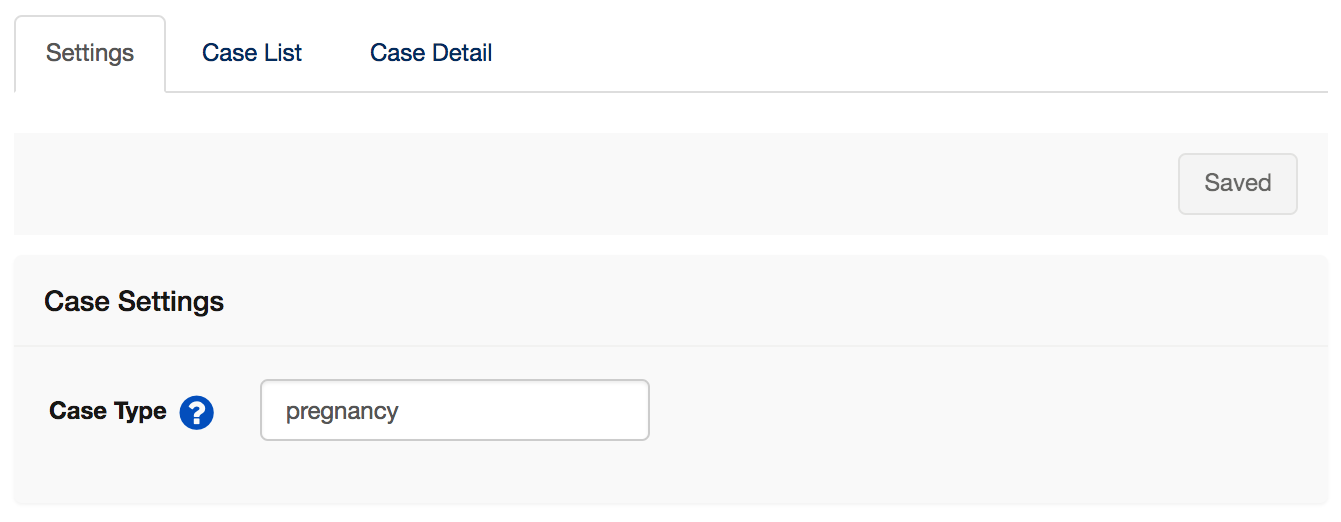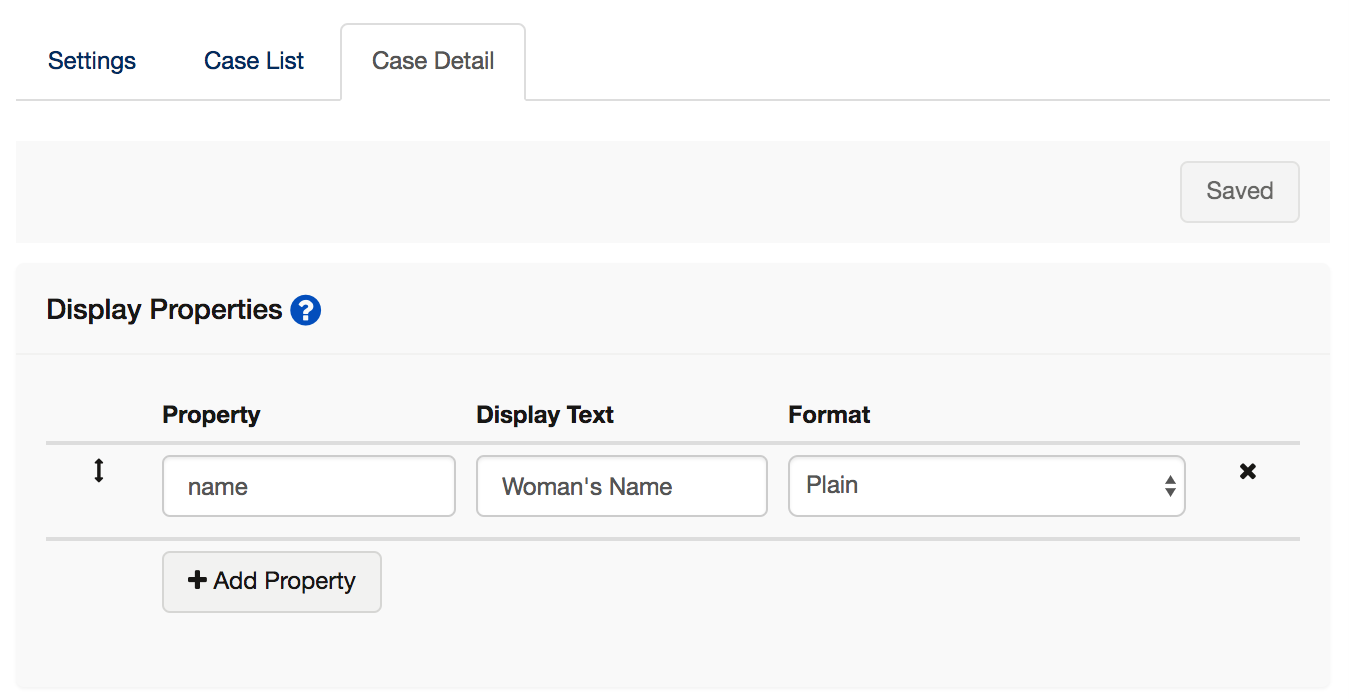The forms are linked together now but it's time to configure some of the higher level settings
In the Module Settings Part of the Case Management Tutorial you will learn how to:
- Define a Case Type at the Module Level
- Configure a Case List
- Configure Case Details
Define a Case Type
The first thing we need to do is to define a case type. Each case list in an application could deal with a different type of case. For example, you might have one module that deals with pregnancies and another one that deals with babies. These are different types of cases so we need to specify.
The name of the case type should be simple - let's just call it: pregnancy.
By clicking on "Case List" you can edit the name of the case list to make it "Pregnancy":
We also want to change the "Label for Cases" - where there is a list of cases on the phone you can think of this as the title of that list. Let's opt for: Pregnant Women.
- Under the "Settings" tab enter case type "pregnancy"
- Confirm you have something like what is below and save your changes:
Setting up the Case List
We also want to change the "Label for Cases" - where there is a list of cases on the phone you can think of this as the title of that list. Let's opt for: Pregnant Women.
- Under the "Settings" tab enter case type "pregnancy"
- Confirm you have something like what is below and save your changes:
Additionally, you want the case to show up properly on the phone's case select screen when choosing a case. Enter "Pregnant Women" on the "Case List" tab.
Similarly, you want to know whether or not you have selected the correct case on the confirmation page. Enter "Pregnant Women" on the "Case Detail" tab.
Don't forget to save your changes!
3. Test Your Application!
Make a new build of your application and test it out. You should notice the following:
- You cannot enter the Home Visit or Birth Outcome forms without having registered someone using the Registration Form
- Each case you add using the Registration Form shows up on the List you see when clicking on Home Visit or Birth Outcome
- If you fill out a Birth Outcome form for someone their name will be removed from the Case List
Congratulations! You've built your first app with case management!
The next tutorial is that Advanced Case Management Tutorial where you will learn about some of the powerful things that Case Management can do.
Go back to the main page of this tutorial or the list of tutorials.
Basic Case Management Tutorial Home
- Adding Follow-up Forms - add two more forms to your application with more practice in form building
- Registering a New Case - get to know the Form Case Management Tab and how to make your Registration Form open a New Case.
- Configure a Follow-up Form - how to make a form require selection of a case before opening it and close out a case
- Module-level Case Management Settings - how to prepare all of your module-level case management and test out your new application



